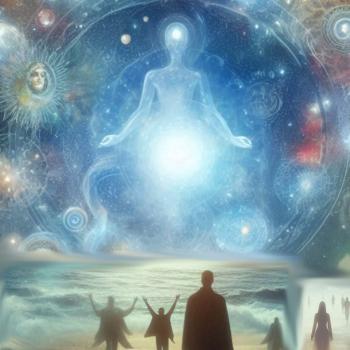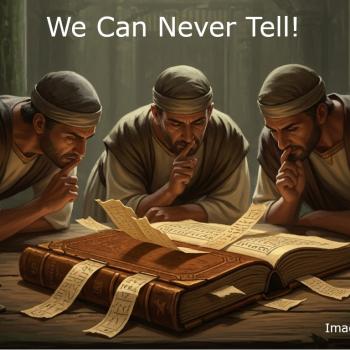For me it’s like being asked, “Are you amber or violet?”

Image by Dorian Scott Cole
Are you amber or violet?
“Are you liberal or conservative?” is the question of the day, isn’t it?
I was raised in a very conservative area and church. United Methodist, then I became a seeker, New Age, then Fundamentalist, then Baptist, …. Presbyterian, UCC, UMC, Love. I agree and disagree. The area I was raised in would not let those of other races spend the night. White and Christian, or out. It was like ancient Judaism all over again. Somehow I never let any of that sink in.
I’ve met many wonderful people in all of these religions and races. I’m a realist. My educational heritage is conservative: IU and other institutions, and I still take courses from MIT and Harvard (regarded as conservative except by extremists).
Jesus set the pattern
I try, and usually fail, to pattern myself after Jesus. He walked into a highly polarized political environment. The Hellenized Jews adopted the Greek-Roman lifestyle, or at least accepted the inevitable. The Sadducees were literalists for the Torah (law). The Scribes interpreted the law for their communities and argued over jots and tittles.
The Pharisees, to explain the law, reached into strange interpretations. The Zealots wanted to overturn the Roman rulers and eventually led the nation to destruction by the Romans. To Jesus they all missed the mark – he was not liberal, conservative, or for overthrow. We have similar movements today.
Jesus tried to help them understand their religion at a deeper level so that they knew what they were doing, and help them understand that the highest priority is love, and to avoid some of the onerous things they were doing.
Jesus showed them the way
Jesus illustrated this for them by his own actions. He went to those that they looked down on or completely rejected:
- Roman soldiers – who were foreigners in their land and displaced self-rule.
- Lepers – considered unclean because of sin, and incurable.
- Gentiles – considered unclean and it was illegal to associate with them by tradition
- Sadducees – the leaders at the Temple and Pharisees who he considered hypocrites and snakes
- Samaritans – who believed only the first five books of the Bible (Torah) Tax collectors – who could love a tax collector! They were notoriously corrupt and represented the illegal Roman establishment.
- Sinners – He said to the prostitute when no one punished her: Neither do I condemn you. He also said, I didn’t come to condemn anyone.
- Women – he disregarded the social customs of the time – we’re all the same in God’s eyes
- Rich and Poor – Neither should be an obstacle to faith. Love improves all. Love is the key. Jesus didn’t tell them to stop being Jews, he simply helped them understand that parts of their religions and traditions might be obstacles to loving others.
Jesus sent his apostles to both Jews and Gentiles. He didn’t ask Gentiles to become Jews. He asked them to pattern their lives after his and be an example to others.
The religious leaders were always throwing trick questions at Jesus. Are you liberal or conservative? His answers helped them understand that the answer wasn’t relevant, there were deeper truths.
Liberal and conservative are social constructs made by humans. They aren’t God’s ideas. We live in an era of rapid change and people hate change and cling to something that looks solid such as the ideals of equality for all, or changeless society.
Liberal or conservative? I choose Jesus. I choose love.
People quickly slap labels on others so they don’t have to consider what they say, and for some they can just hate you. Conservatives think I’m a liberal, and Liberals think I’m a conservative – neither appreciate what I say. I don’t wear labels or agree with them. I simply try to help both understand their religion. I try. Sometimes it works, but I lack the depth of Jesus’ skills and knowledge. It’s worth a shot. It’s about love.
Take Home Points
We live in an era of rapid change. Just as Jesus brought change, and the history of the church has always been one of change, Jesus tried to help people understand what is important. In an era of rapid change, hold onto love. Love is the founding principal of Judaism, Christianity, and nearly all religions.
As we move on with this series about this New Era of Change, Conscience, and Reassessment, we need to drop the exclusivist ideas that have become tradition without any basis in fact. There is no exclusivism in following Jesus. These are distortions of what the Bible says.
The standard of belief and conduct for Christianity is love, and it’s not an option or usurped by some idea about “Law.” Our conduct is a matter of conscience for each of us to wrestle with. If in doubt, apply love.
There is no law more important than that of our own conscience. If we violate our conscience we condemn ourselves, and we find it harder to forgive ourselves than others.
_____________________________
Additional Resources
How to Keep Millennials Engaged in Church – on Patheos
What Is Meant by Truth? – on Patheos
Tabernacle of Hate – False Religion – on Patheos
10 Reforms Christianity Needs to Make Right Now
________________________
The standard of belief and conduct for Christianity is love. Legal standard.
________________________
If I’ve challenged your thinking, I’ve done my job.
If you find these articles intriguing, please consider joining the mailing list.
___________________
Our answer is God. God’s answer is us. Together we make the world better.
– Dorian













